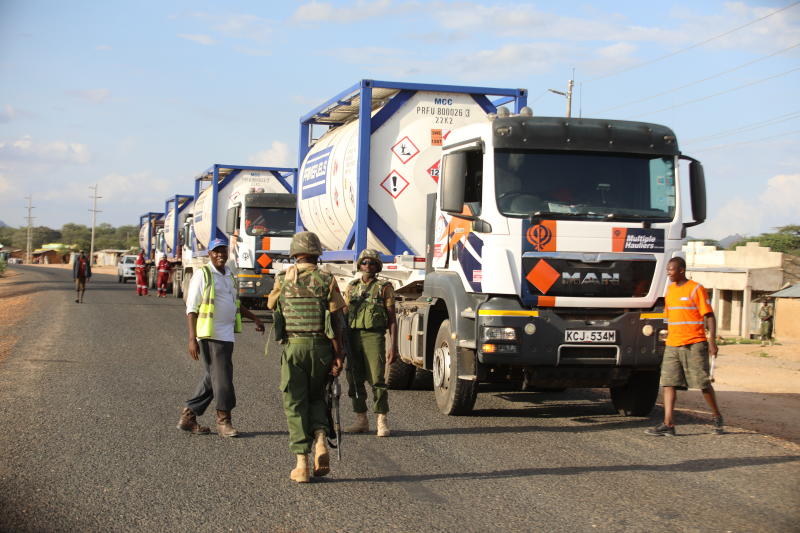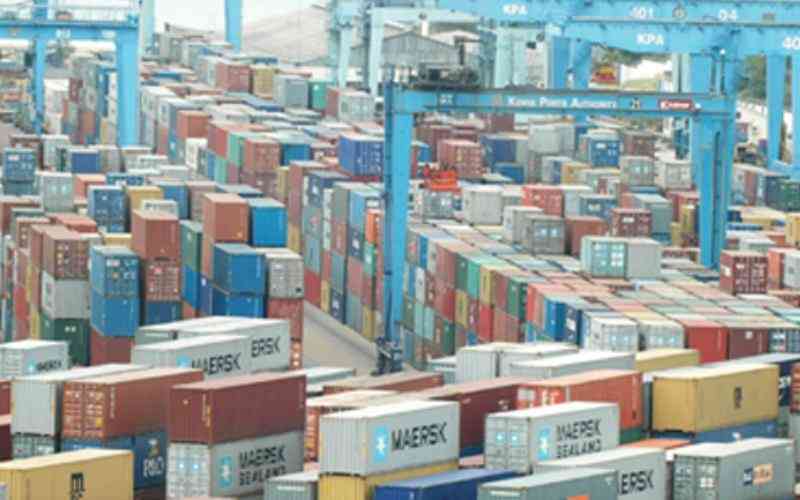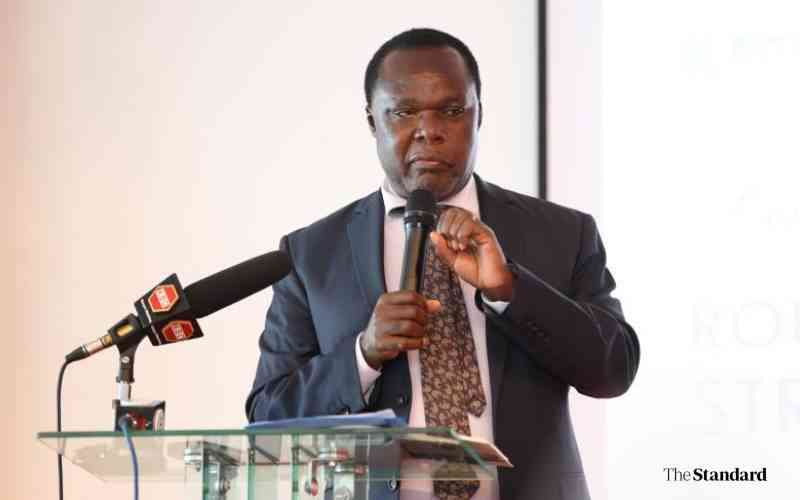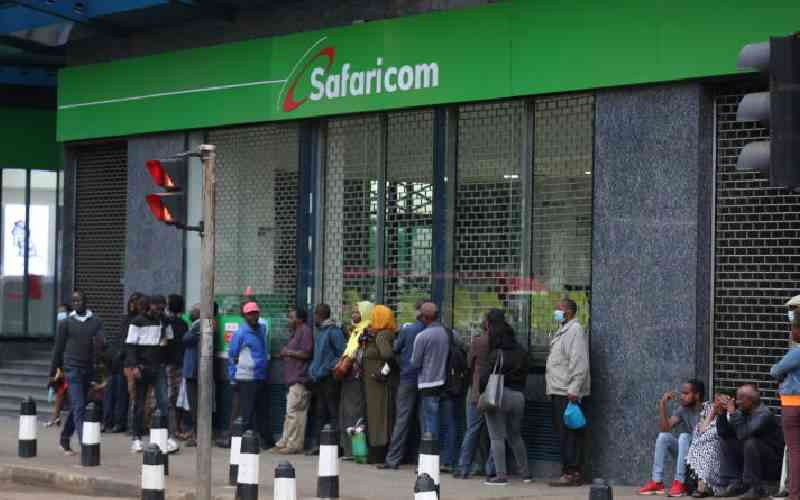×
The Standard e-Paper
Join Thousands Daily

Tankers transport crude oil from the Ngamia 8 Oil Well in Turkana to the Kenya Petroleum Refineries Limited in Changamwe. [File, Standard]
Tullow Oil is planning to take advantage of high oil prices to offload crude oil drilled from the Turkana oilfields during the pilot project.







